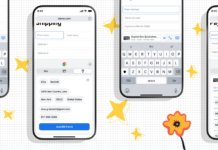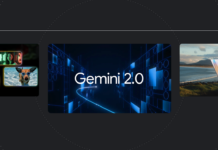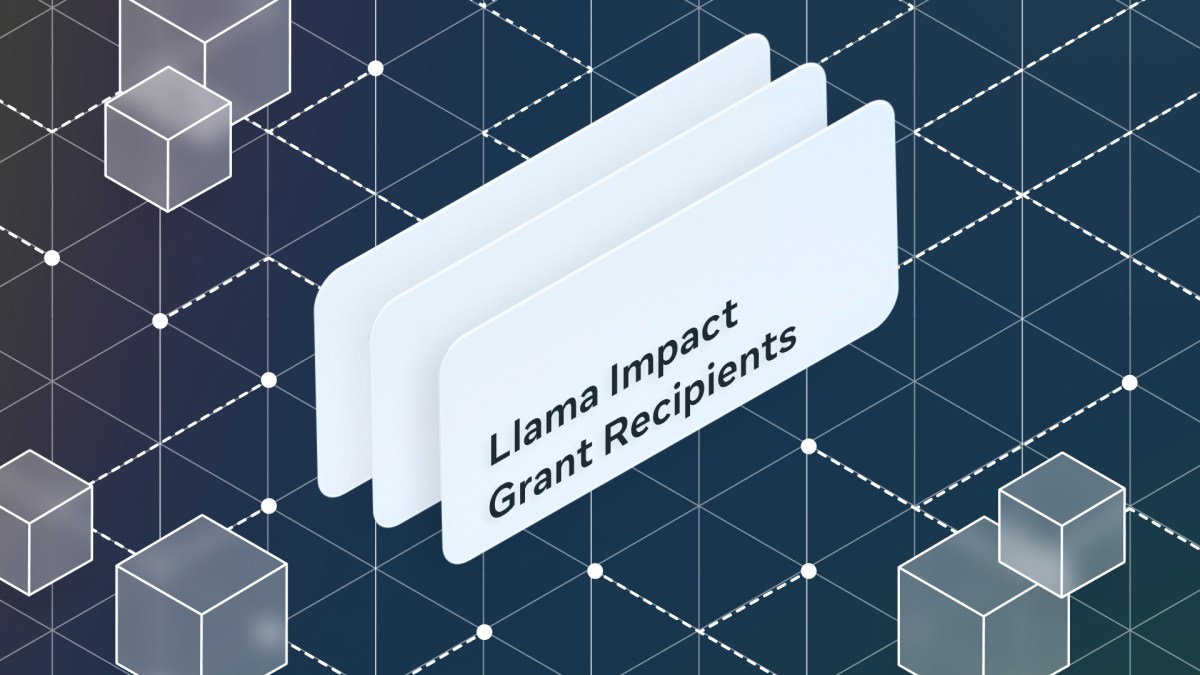Today, we are pleased to announce the recipients of the 2023 Llama Impact Grants. This grants program, which was initiated in 2023, aims to support innovative uses of Llama 2 and Llama 3, our open-source AI models, to tackle pressing social issues. We received more than 800 applications from organizations across over 90 countries, proposing diverse uses of Llama in education, environment, and open innovation sectors. From this considerable pool of applicants, twenty finalists were selected, and three proposals emerged as the leaders.
Making English More Accessible to Students in India
In Gujarat, India, Wadhwani AI has an ambitious plan to utilize Llama 3 to develop an AI-enabled reading fluency assessment. This initiative is designed to enhance English reading and comprehension skills among students in public schools in Gujarat. This project, created in collaboration with Gujarat’s Department of Education, will leverage Llama to generate passages and comprehension questions that align with the needs, abilities, and learning levels of students. The students will read these passages aloud, and the program will identify mispronunciations. It will then generate new, culturally relevant passages using the mispronounced words, helping to target and improve problem areas. Given that English proficiency is crucial for social and economic mobility in India, Wadhwani AI’s project represents a significant step towards making English more accessible to all.
Advising Farmers in Underserved Areas
Digital Green’s Farmer Chat is a multilingual AI chatbot providing customized, on-demand agricultural advisory services to farmers in underserved areas in India, Kenya, and Nigeria. For their project, Digital Green plans to train Llama 2 on an extensive repository of agricultural data. This will adapt the model to the specific needs and contexts of different regions, enhancing the accuracy and relevance of Farmer Chat. Llama’s conversational capabilities will be employed to engage with farmers, understand their queries, and provide comprehensive and practical responses in various local languages such as Hindi, Swahili, and Kikuyu. This project, in partnership with One Acre Fund, aims to improve climate resilience and reduce poverty among small-scale farmers by lowering the cost of agricultural advisory services.
Matching Cancer Patients to Clinical Trials
The Dana-Farber Cancer Institute (DFCI) in the US plans to create a new open-source AI platform to computationally match cancer patients with clinical trials. DFCI’s project will use Llama 3 to summarize and interpret unstructured clinical notes and clinical trial eligibility criteria, enabling the rapid identification of suitable trial options for individual patients. These new AI models will be integrated into DFCI’s existing open-source MatchMiner platform and evaluated with clinical partners. Clinical trials are crucial for developing new cancer therapies, and efficient matching can help facilitate more of these trials.
Runners-Up and Impact Innovation Awardees
Jacaranda Health, the runner-up for the Grants, was awarded $300,000 to expand the capabilities of their AI digital health service, PROMPTS, using Llama. Additionally, we have awarded grants to eleven winners of the Llama Impact Innovations Awards. This extension of the grants program was created to further identify and support organizations based in Africa, the Middle East, Turkey, Asia Pacific, and Latin America that are already using Llama 2 and 3 to address regional issues. Besides financial awards, winners and runners-up will have access to a range of resources to help them implement their projects, including mentorship, partnership opportunities, and ad credits. We are excited to observe how Llama can contribute to social progress worldwide and encourage eligible organizations to apply for the 2024 Llama Impact Grants.
Understanding the Technical Jargon
For those unfamiliar with some of the technical terms mentioned, here’s a brief explanation:
- AI (Artificial Intelligence): This refers to the simulation of human intelligence by machines, particularly computer systems. It involves processes like learning (acquiring information and rules for using the information), reasoning (using rules to reach approximate or definite conclusions), and self-correction.
- Open Source: This means that the source code of a software is made freely available and can be redistributed and modified. Open-source software is often developed collaboratively.
- Llama 2 and Llama 3: These are specific models of artificial intelligence developed by Meta. They are designed to be versatile and powerful, capable of understanding and generating human-like text based on the input they receive.
- Unstructured Data: This refers to information that doesn’t have a pre-defined data model or isn’t organized in a predefined manner. Examples include emails, social media posts, and clinical notes, which are often text-heavy and can include dates, numbers, and facts that are difficult to process systematically.
Additional Insights
The Llama Impact Grants program represents a significant push towards leveraging advanced AI technologies to address some of the world’s most pressing issues. The selected projects highlight the versatile applications of AI, from improving education and agricultural practices to enhancing healthcare outcomes.
For instance, the project in Gujarat is particularly noteworthy because it aims to bridge the educational gap using technology. English proficiency is a gateway to greater opportunities in India, and by improving reading and comprehension skills, this project could have a long-lasting impact on the students’ futures.
Similarly, the Farmer Chat initiative by Digital Green is an excellent example of how AI can be utilized to provide practical solutions to real-world problems. By offering tailored advice to farmers in their local languages, this project not only helps in improving crop yields and farming practices but also plays a crucial role in alleviating poverty and enhancing climate resilience.
The Dana-Farber Cancer Institute’s initiative is groundbreaking in the healthcare sector. Efficiently matching patients to clinical trials can significantly speed up the development of new cancer treatments, ultimately saving lives. The integration of AI in this process ensures that the matching is done quickly and accurately, which is essential in a field where time is often of the essence.
Conclusion
The 2023 Llama Impact Grants showcase the transformative potential of AI when applied thoughtfully and strategically. As these projects move forward, they hold the promise of not only addressing specific challenges but also setting new standards for how technology can drive social progress. We encourage all eligible organizations to explore the possibilities and apply for the 2024 Llama Impact Grants, continuing the journey of innovation and impact. For more information, you can visit the official Llama Impact Grants page.
For more Information, Refer to this article.


































